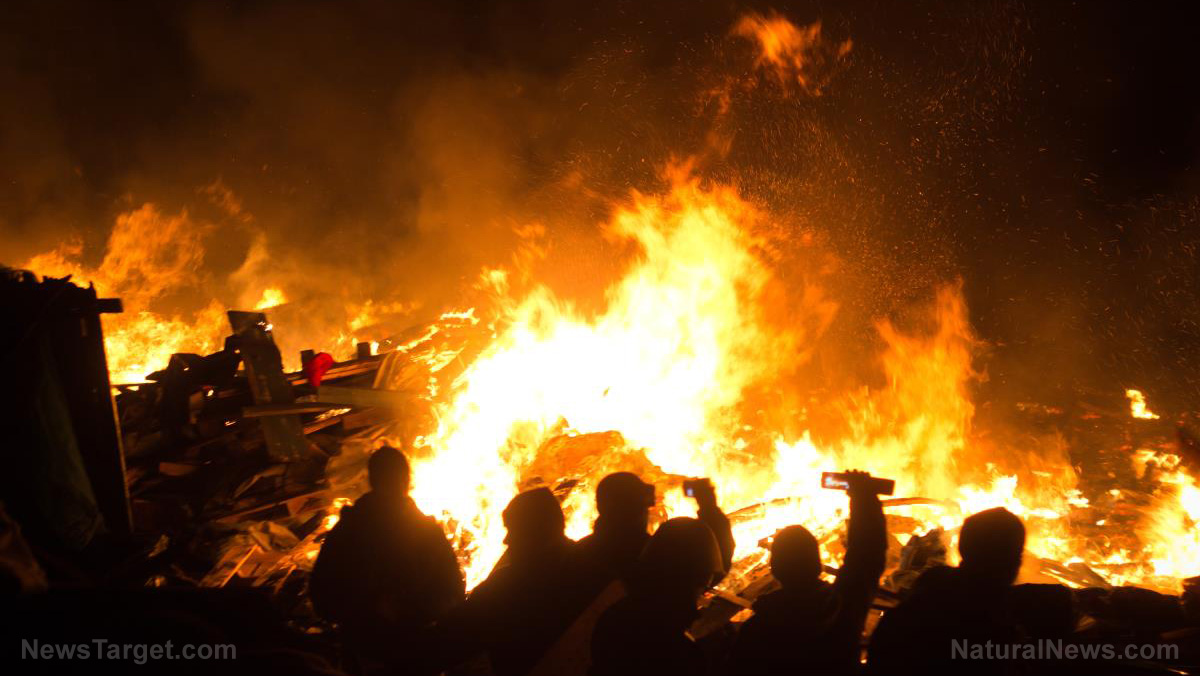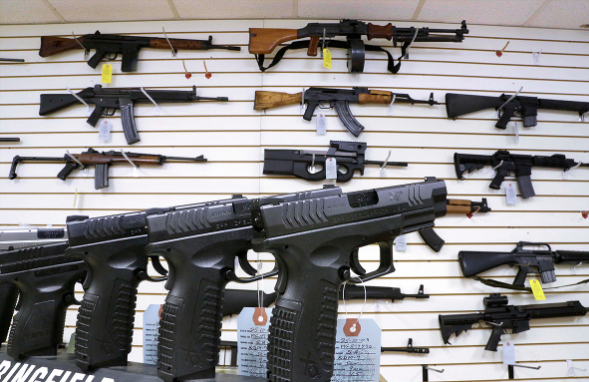
Sri Lanka is still on the road to collapse as more and more of the country's residents run out of food, gas, electricity and other essentials for survival. To quell the protests, Sri Lankan police and military units have begun firing into crowds.
Widespread protests in the South Asian island nation have been ongoing since March in what is regarded as the country's worst economic crisis since it gained independence 74 years ago.
The massive unrest began when the nation's population of 22 million started enduring shortages in essential items. People are also suffering from rapid inflation, a massive rise in the cost of living and massive corruption and mismanagement of the economy under the administration of left-wing President Gotabaya Rajapaksa, who continues to resist calls to step down. (Related: A GLIMPSE OF THE NEAR FUTURE: Global collapse may follow pattern of Sri Lanka economic crisis.)
These protests have been violent, almost from the very beginning, with at least a dozen protesters and a handful of police reported dead, hundreds injured and even more arrested by state security forces. A member of parliament, Amarakeerthi Athukorala, and his bodyguard were also beaten to death by a mob.
On Saturday night, June 18, Sri Lankan army troops fired into a crowd in the small town of Visuvamadu, around 228 miles north of the capital of Colombo.
The protest in the town began when the pump at the local gas station ran out. The armed police and army personnel stationed to guard the gas station were faced with a mob of around 20 to 30 people, according to army spokesperson Nilantha Premaratne.
"A group of 20 to 30 people pelted stones and damaged an army truck," said Premaratne. The spokesperson then went on to claim that the army unit had to protect itself by firing at the crowd.
A police report of the altercation said four protesters and three soldiers were wounded during the incident, which marks the first time the army itself has had to open fire on a crowd to contain the unrest.
This is also one of the highest casualty incidents recorded since the unrest began.
Police added that clashes involving motorists and other protestors erupted in at least three other locations over the weekend, resulting in at least six police officers being wounded while seven protesters were arrested.
This is not the first time shooting incidents erupted at gas stations. Back in April, a motorist was shot dead by police in the central town of Rambukkana when clashes erupted over the distribution of rationed gasoline and diesel.
Sri Lanka's collapse continues amid limited government efforts to control the crisis
The United Nations has warned of a looming "dire humanitarian crisis" developing in Sri Lanka. Its data show that four out of five people in the country have begun skipping meals because they can't afford to eat. Millions will end up needing food aid without any proper resolution to the crisis.
As part of the World Food Program's "life-saving assistance" operations in Sri Lanka, it has begun distributing food vouchers to about 2,000 pregnant women in Colombo's most "underserved" areas.
The agency is trying to raise an additional $60 million in a food relief effort, which was supposed to start at the beginning of the month and run through the end of the year.
Meanwhile, what the left-wing government has done so far to address the needs of the millions of protesters has been fairly limited. A two-week shutdown of schools and state institutions was recently introduced in a bid to reduce commuting and conserve the country's rapidly depleting stores of fuel.
The government has also approved a four-day work week for public sector workers to further reduce the need to use up fuel during their commute. This was also meant to encourage them to use their extra day off to grow their own food.
Learn more about how countries are dealing with the global economic crisis at Chaos.news.
Watch this clip from "The American Journal" on InfoWars as host Harrison Smith talks about an earlier incident wherein police killed protestors in Sri Lanka.
This video can be found in the InfoWars channel on Brighteon.com.
More related articles:
Thousands line up for cooking fuel in Colombo amid Sri Lanka's economic collapse.
Sri Lanka on the brink of bankruptcy, faces food, fuel and medicine shortages.
Sri Lanka running out of fuel, has enough supply for only one more day.
Food riots: Violent protests erupt in Sri Lanka and Iran as prices of everyday goods soar.
Sources include:
Please contact us for more information.




















